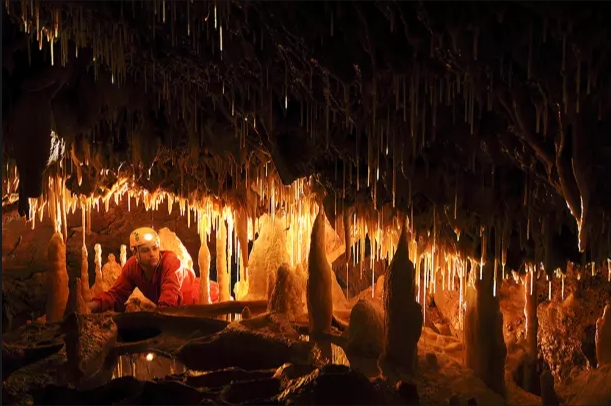The second part of the 8th UNESCO Global Geoparks Council session took place last week to assess new geopark applications, revalidations and zone-modification requests.  Maestrazgo UNESCO Global Geopark, Spain
Maestrazgo UNESCO Global Geopark, Spain
At its virtual meeting on 7–8 December 2023, the UNESCO Global Geoparks Council decided to forward two further nominations to the Executive Board of UNESCO for endorsement as new UNESCO Global Geoparks.
Geoparks proposed for endorsement in 2024
The UNESCO Global Geoparks Council has proposed the following two nominations for designation by UNESCO, including one deferred applications (marked with *).
- Meteora-Pyli, Greece
- Land of Extinct Volcanoes, Poland*
These will be forwarded to the Executive Board of UNESCO for endorsement, together with the 16 nominations that had been approved by the Council during the first meeting of this 8th session, which took place in Morocco in September 2023.
This means that the Executive Board will be examining 18 nominations at its next session in spring 2024.
Zone modification
The Council approved one proposal for a zone modification within an existing UNESCO Global Geopark, allowing an extension of more than 10% of the geopark’s current size:
- Yanqing UNESCO Global Geopark, China
Revalidation of existing UNESCO Global Geoparks
In order to ensure the quality of UNESCO Global Geoparks, they are subject to a thorough revalidation every four years. A green card denotes renewal of the UNESCO Global Geopark label for four years, whereas a yellow card restricts this renewal period of two years, in order to give the geopark time to address the Council’s recommendations.
During this session, the Council gave 19 green cards.
- Tianzhushan UNESCO Global Geopark, China
- Taining UNESCO Global Geopark, China
- Xiangxi UNESCO Global Geopark, China
- Zhangye UNESCO Global Geopark, China
- Papuk UNESCO Global Geopark, Croatia
- Troodos UNESCO Global Geopark, Cyprus
- TERRA.vita UNESCO Global Geopark, Germany
- Vulkaneifel UNESCO Global Geopark, Germany
- Muskau Arch UNESCO Global Geopark, Germany-Poland
- Reykjanes UNESCO Global Geopark, Iceland
- Rio Coco UNESCO Global Geopark, Nicaragua
- Yangan Tau UNESCO Global Geopark, Russian Federation
- Cabo de Gata – Nijar UNESCO Global Geopark, Spain
- Granada UNESCO Global Geopark, Spain
- Sierras Subbeticas UNESCO Global Geopark, Spain
- Villuercas-Ibores-Jara UNESCO Global Geopark, Spain
- Lanzarote y Archipelago Chinijo UNESCO Global Geopark, Spain
- Sobrarbe Pirineos UNESCO Global Geopark, Spain
- Maestrazgo UNESCO Global Geopark, Spain
Total numbers from the 8th Session of the UNESCO Global Geoparks Council
- 18 geoparks endorsed for UNESCO nomination in 2024
- 56 revalidations of existing UNESCO Global Geoparks
Next steps
Should the UNESCO Executive Board decide, in April 2024, to endorse the 18 recommendations made by the Council at its twin meetings in September and December 2023, this would bring the total number of sites in the UNESCO Global Geoparks network to 213 in 48 countries, up from 195 existing UNESCO Global Geoparks.
In accordance with Sections 2.10 and 5.5 of the Operational Guidelines for UNESCO Global Geoparks, the Council shall present a report on its work and decisions to the UNESCO Global Geoparks Bureau in January 2023. This report will then be circulated to Member States and Associate Member States of UNESCO.
